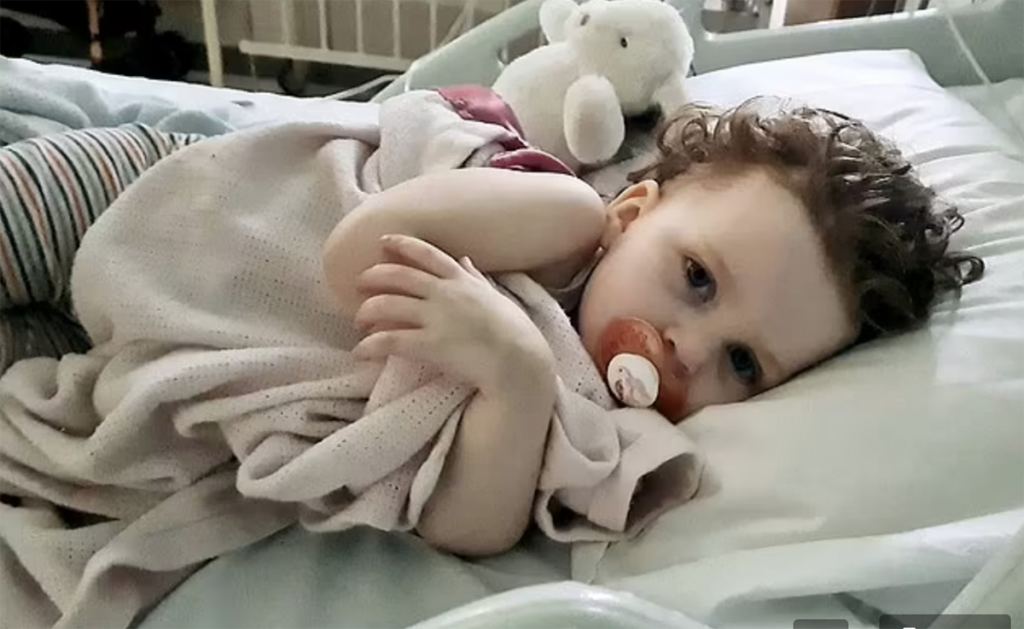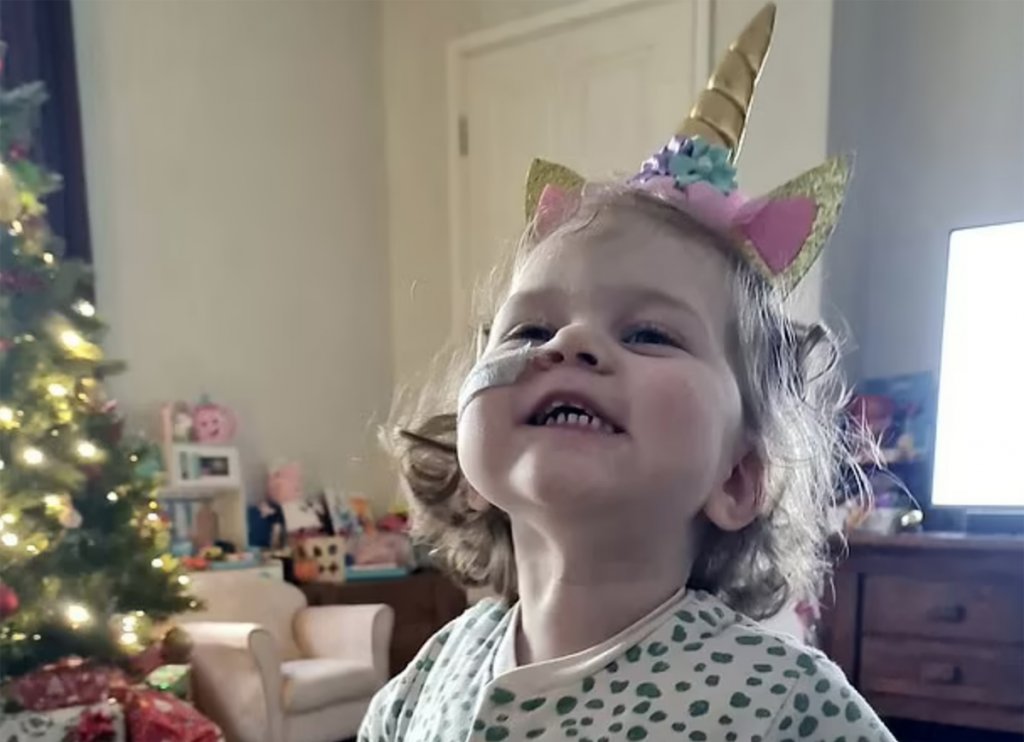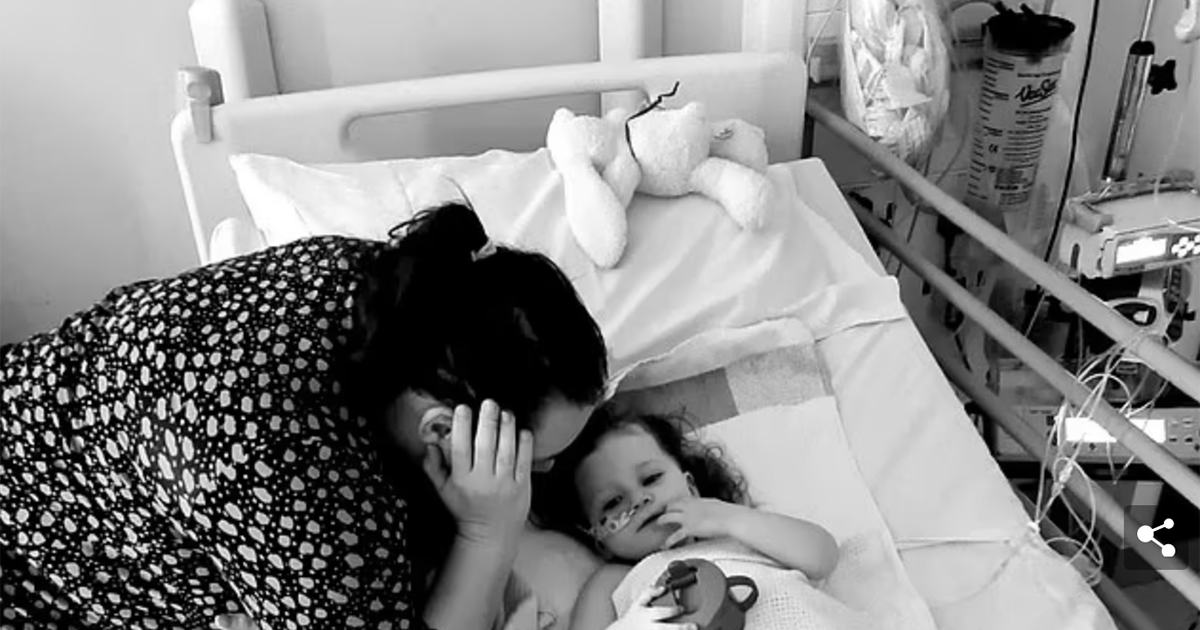Understanding Liver Cancer
- What doctors thought was constipation or appendicitis turned out to be a rare liver cancer for 2-year-old Grace from Worcestershire, England.
- The cancer was something her mother, Louise Millward, 34, was suspect of all along, highlighting the importance of advocating for your child as a parent.
- The most common form of liver cancer is hepatocellular carcinoma, but there are other types of liver cancers as well, such as hepatoblastoma, a rare type.
The cancer went undiagnosed for six months due to her doctor's mistake. But Grace actually had a tumor growing on her liver that was 14 centimeters in length. In October of last year, she was diagnosed with hepatoblastoma, a rare cancer that affects just two or three in 1 million children.
Read MoreA Mother's Intuition
A mother's intuition is no joke. For Millward, it was no different.In May of last year, she began to notice that her 2-year-old was losing her appetite and more tired than normal. That is when she took Grace to the doctor and the doctor told her the symptoms were likely just constipation or appendicitis. She was then sent home.

But in October, Millward noticed that her daughter's stomach was swollen and rushed her to the hospital. Tests revealed that Grace's liver was inflamed, which led to her hepatoblastoma diagnosis.
However, concerns around a possible misdiagnosis began when her father and Millward's partner, Don, also 34, noticed Grace falling over.
Once the family was sent home, Millward says, "we had incidents of her falling over, vomiting, sickness, lack of interest. These incidents were happening from May until October. … We thought it may be a virus or something."
"Then one night while I was giving her a bath, I noticed she had a vein mapping across her stomach. I had never seen this before," the mother adds. "Her veins and arteries had to come to the surface because of the pressure."
Doctors told Millward that Grace's liver was enlarged and protruding from her body, and the vein mapping was from the pressure of her tumor on her arteries.

*Mother's intuition: enter stage left* This is when Millward took matters into her own hands and searched her daughter's symptoms on the internet and suspected she actually had a rare cancer. And she was right because on Nov. 2, 2021, the family was told that Grace in fact had hepatoblastoma.
"We were devastated but not surprised," Millward says.
Grace is now receiving aggressive chemotherapy for her rare cancer, in addition to radiation treatments in hopes that her tumor will shrink. Just a week ago, at the end of December, the family was told that there was a 13% reduction in the size of Grace's tumor some welcomed news amid the holidays.
"As for the future, we don't know, but the chemotherapy is shrinking the tumor," Millward says. "Grace's cure is having it removed by a resection or transplant. The surgeons have told us she can survive with a third of her liver."
Understanding Liver Cancer
Liver cancer begins in the liver an organ located beneath the diaphragm and above the stomach. The most common form of the disease is hepatocellular carcinoma, but there are other types of liver cancers as well, such as hepatoblastoma, a rare type of liver cancer.
Pancreatic & Liver Cancer Survivor Joel Naftelberg Learned to Dance on His Problems
While we know that any type of liver cancer in children is extremely rare, the most common type of pediatric liver cancer is in fact hepatoblastoma, according to Children's Hospital of Pittsburgh.
Blood tests, ultrasounds, CT scans, MRIs and angiograms are generally used to confirm a liver cancer diagnosis. A liver biopsy, when a small piece of tissue is removed and analyzed for cancerous cells, may also be performed.
Oftentimes, a liver transplant is considered the best plan when the patient is eligible just as Grace's mother says of her daughter's disease. For cases of recurrent liver cancer and cancer that has spread throughout the body, your doctor may consider targeted therapy, immunotherapy or chemotherapy as the next step.
Advocating for Yourself, or Your Child
Just as being your own advocate is important when it comes to cancer care, it is just as important for parents to advocate for their child's health. And by doing so, you can make sure that your doctor sees you and your child as an individual in the diagnosis and treatment process.
Advocating for Yourself While Navigating the Medical World
"One of the biggest things that I did from the very beginning was asking the right questions," Alex Echols, a patient advocate and lymphoma survivor, tells SurvivorNet. "It's our lives on the line."
He credits these questions with making sure that doctors took him seriously and viewed him as a partner in his treatment.
Contributing: Abby Seaberg
Learn more about SurvivorNet's rigorous medical review process.


